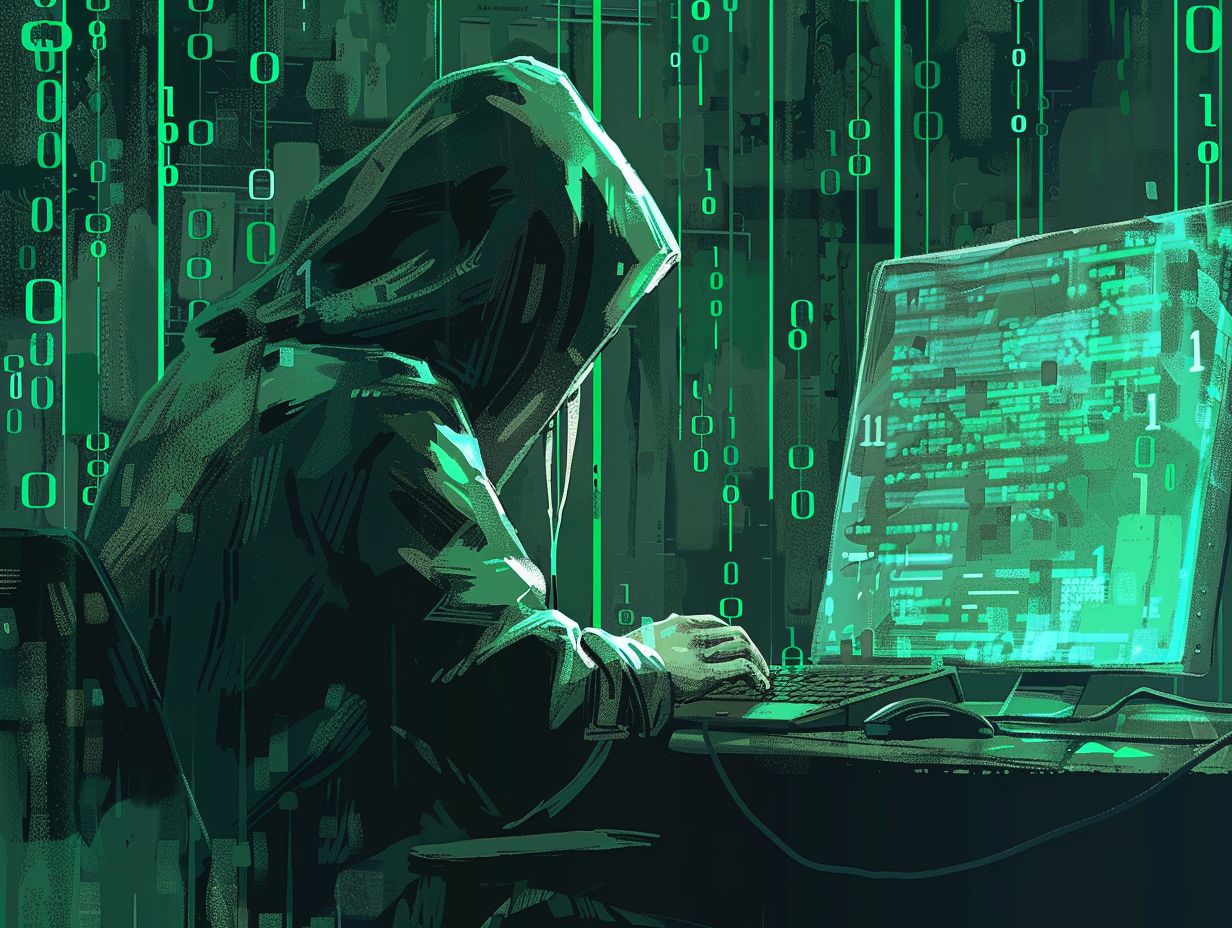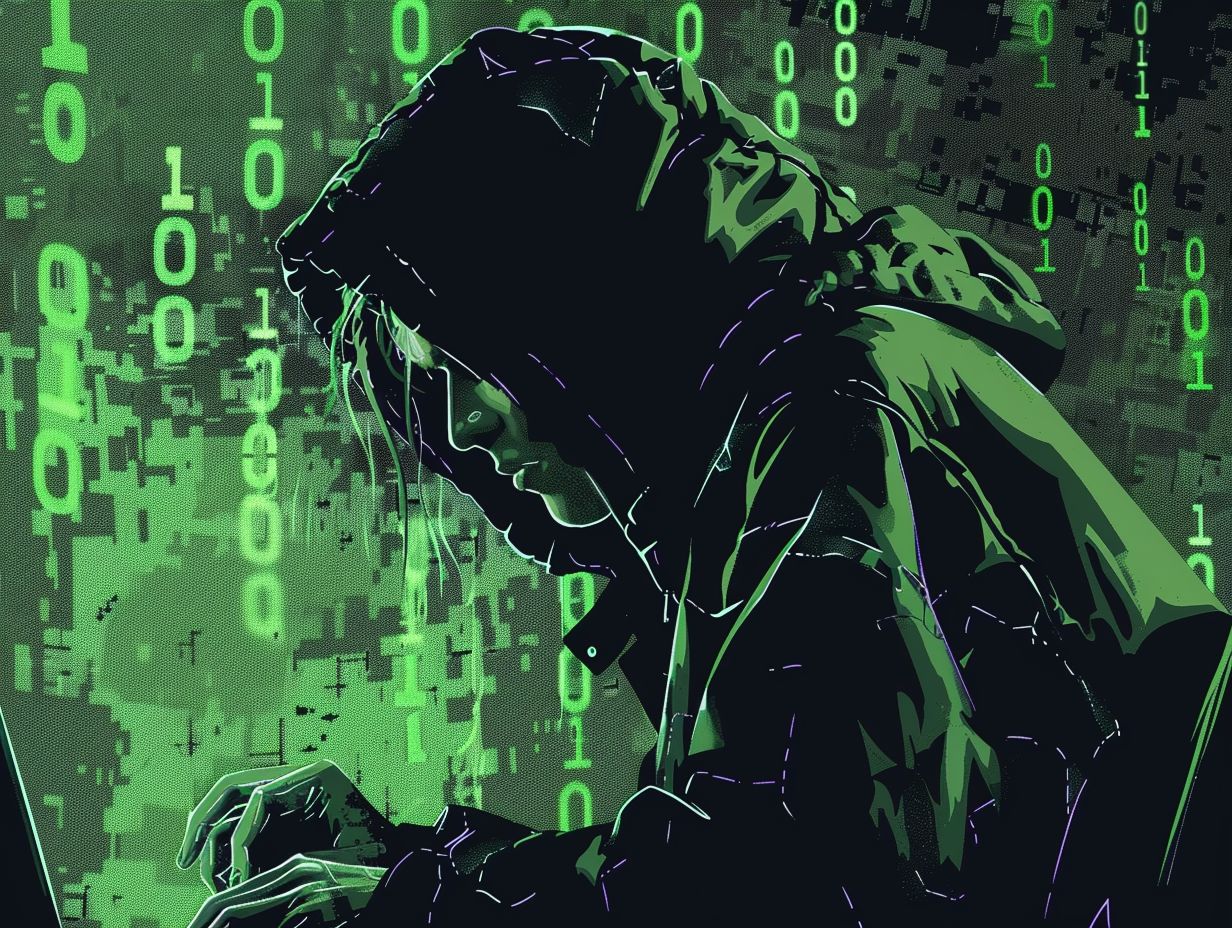If you are interested in delving into the realm of ethical hacking, the Certified Ethical Hacker certification offered by EC-Council is an excellent choice. In this certification, we will delve into the significance of offensive security, the advantages of obtaining the Certified Ethical Hacker title, and the steps required to prepare for the examination.
Additionally, you will have the opportunity to explore potential career progression routes, practical uses in real-world scenarios, as well as the expertise and comprehension acquired through this certification. Uncover the influence of digital forensics on cybersecurity and society with this in-depth examination of the subject matter.
Key Takeaways:

What is a Certified Ethical Hacker?
A Certified Ethical Hacker (CEH) is a skilled professional who is trained to identify vulnerabilities in computer systems and networks through penetration testing and other offensive security techniques.
Your main role involves utilizing your expertise to proactively protect organizations from cyber threats by finding weaknesses before malicious hackers can exploit them. Ethical hackers work closely with businesses to conduct security assessments, implement defensive strategies, and recommend solutions to enhance overall security monitoring posture.
By mimicking the tactics of malicious attackers, CEHs can uncover potential security loopholes, assess risks, and provide valuable insights to help organizations strengthen their defense mechanisms. In today’s rapidly evolving digital landscape, ethical hackers play a critical role in safeguarding sensitive data, maintaining customer trust, and ensuring the integrity of digital assets.
The Importance of Offensive Security
Having a firm grasp of offensive security practices is essential in the field of cybersecurity to effectively identify and address potential threats and vulnerabilities before they are exploited by malicious actors.
Understanding the Role of Offensive Security
In terms of offensive security, you are tasked with conducting penetration testing using various techniques to evaluate the security status of your organization’s systems and networks. Your role is critical in pinpointing vulnerabilities that could be exploited by malicious actors to access sensitive data.
Leveraging your expertise, you simulate real-world cyber attacks to gain insights into potential weak spots within your organization’s defenses. By conducting thorough assessments from an attacker’s perspective, you can recommend and implement robust security measures to minimize risks and strengthen your organization’s overall security stance against potential cyber threats.
Your proactive approach enables you to stay ahead of cybercriminals and enhance the resilience of your digital assets.
Benefits of Becoming a Certified Ethical Hacker
Achieving certification as a Certified Ethical Hacker will open up numerous job opportunities in the cybersecurity industry, offering competitive salaries and the potential for professional growth and advancement.
Career Advancement Opportunities

You, as a Certified Ethical Hacker, have access to a wide range of career advancement opportunities, including roles such as cybersecurity analysts, penetration testers, security consultants, and more. These professionals can find employment in various industry sectors such as finance, healthcare, government, and technology companies. Certified Ethical Hackers can further specialize in areas like cloud security, network security, or application security, opening up additional avenues for career growth.
Professional development opportunities abound for you, ranging from obtaining advanced certifications such as Certified Information Systems Security Professional (CISSP) to attending specialized training workshops and conferences in the field of ethical hacking.
Skills and Knowledge Gained
Through the Certified Ethical Hacker certification, you will acquire a comprehensive set of skills and knowledge in areas such as penetration testing, network security, ethical hacking techniques, and cybersecurity best practices.
You will develop a deep understanding of various cybersecurity frameworks, such as NIST, ISO 27001, and COBIT, which are crucial for implementing robust security measures. You will gain proficiency in risk management, vulnerability assessment, incident response, and security compliance requirements. This certification will equip you with the ability to identify security loopholes, perform penetration tests, and secure systems against potential threats. You will learn about the legal and ethical considerations in cybersecurity, ensuring that you operate within the boundaries of the law while safeguarding digital assets.
Preparation for the Certified Ethical Hacker Exam
Preparing for the Certified Ethical Hacker exam requires you to possess a comprehensive understanding of hacking tools, techniques, methodologies, and the capability to apply offensive security concepts effectively in practical scenarios.
Recommended Study Materials
Individuals preparing for the CEH exam are encouraged to utilize comprehensive training programs and study materials to improve their knowledge and skills, despite the associated costs. Dedicated training programs designed specifically for the CEH exam offer structured learning environments with hands-on practical experience, providing candidates with a deeper insight into penetration testing and cybersecurity concepts.
Online courses provide flexibility, allowing candidates to study at their own pace and access resources from any location. Self-study options like CEH study guides, practice exams, and virtual labs facilitate independent learning and reinforce important subject matter. By integrating these resources, a robust exam preparation strategy can be formulated to enhance the likelihood of success.
Tips for Success on the Exam
To excel in the Certified Ethical Hacker exam, you should familiarize yourself with the exam details, eligibility criteria, exam format, and focus on the practical application of ethical hacking techniques.
Understanding the CEH exam structure is crucial. It consists of 125 multiple-choice questions with a time limit of 4 hours. To effectively manage your time during the exam, allocate a specific amount of time to each question and keep track of your progress. Ensure you meet the eligibility requirements for the exam, including having at least two years of work experience in the information security domain. Adopting effective study strategies such as creating a study schedule, practicing with mock exams, and mastering key concepts will boost your confidence and readiness for success.
Real-World Applications of Certified Ethical Hacking

The skills obtained from Certified Ethical Hacking certification have practical implications in various areas, including network security, Linux system administration, Python scripting, and other cybersecurity domains.
Examples of Ethical Hacking in Action
Utilizing ethical hacking practices involves leveraging techniques like bash scripting to automate security tasks, streamline cybersecurity operations, and optimize overall efficiency, potentially resulting in cost savings for your organization.
An example of this is employing bash scripting to create scripts that conduct regular security checks, monitor network activities, and promptly identify potential vulnerabilities in real-time. This automated process not only liberates valuable human resources but also guarantees consistent enforcement of security protocols. By promptly identifying and addressing vulnerabilities, your organization can reduce the risk of cyber attacks, protect sensitive data, and uphold customer trust. This proactive strategy not only strengthens the security posture but also showcases a dedication to prioritizing data protection.
Impact on Cybersecurity and Society
The practice of ethical hacking and maintaining certifications like CEH plays a vital role in enhancing cybersecurity defenses, protecting digital assets, and fostering a safer digital society, necessitating ongoing learning and recertification to stay abreast of evolving threats and technologies.
In today’s dynamic digital landscape, the significance of ethical hacking in fortifying cybersecurity measures is paramount. As a professional in this field, you must prioritize continuous learning and upskilling to adapt to the constantly changing tactics employed by malicious actors. Ethical hackers, through recertification and professional development, not only safeguard sensitive information but also make a substantial contribution to shaping a more secure online environment. Their role extends beyond addressing immediate threats; it involves proactively staying ahead of potential vulnerabilities and ensuring the resilience of critical systems.
Frequently Asked Questions
What is EC-Council’s Certified Ethical Hacker: Mastering Offensive Security?
EC-Council’s Certified Ethical Hacker: Mastering Offensive Security is a training program designed to teach individuals how to identify, exploit, and defend against potential security vulnerabilities. It covers a wide range of topics related to ethical hacking and offensive security techniques.
What are the benefits of becoming a Certified Ethical Hacker?

Becoming a Certified Ethical Hacker can open up a variety of career opportunities, as it demonstrates your knowledge and skills in the field of ethical hacking. It can also help you to better understand and protect your own personal and professional digital assets.
Is there a prerequisite for taking the Certified Ethical Hacker course?
No, there is no prerequisite for taking the Certified Ethical Hacker course. However, it is recommended that individuals have a basic understanding of networking and security concepts before enrolling in the program.
How long does it take to complete the Certified Ethical Hacker program?
The length of the program varies depending on the learning format, but on average it takes about 40-60 hours to complete. This includes both self-paced online learning and live instructor-led training.
What is the exam format for the Certified Ethical Hacker certification?
The exam consists of 125 multiple-choice questions and has a time limit of 4 hours. The passing score is 70%. The exam is proctored and can be taken online or at a designated testing center.
Is the Certified Ethical Hacker certification recognized globally?
Yes, the Certified Ethical Hacker certification is recognized globally and is highly respected in the IT industry. It is also accredited by ANSI and is compliant with the NICE 2.0 Framework.
